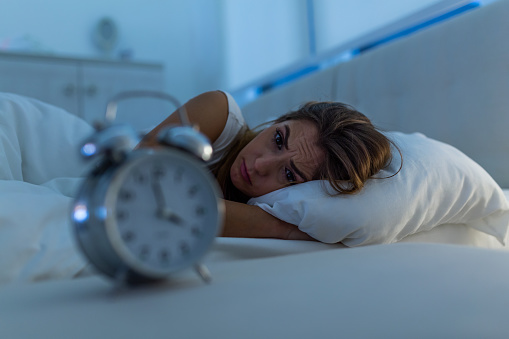Sleep in summer:While the bone-chilling freezing temperatures may be relieved in the summer, the season also brings with it a number of problems like insufferable heat, a mosquito threat, and other seasonal ailments. As the mercury rises, many people also experience difficulty falling asleep. What gives, though? It has more to do with the lengthening of the day during the summer than it does with the temperature.

Improve Sleep in summer
Light is one external component that has the biggest influence on the circadian rhythm, a bodily process that controls our sleep-wake cycle.
Late-day light exposure results in fewer delta or slow-wave sleep cycles and more awakening episodes at night. This slow-wave period of sleep encourages feelings of fulfilment.
As a result, Sleep in summer phase extends into the day, reducing the number of hours of total sleep and causing early morning awakenings. Longer daylight hours, which affect melatonin hormone secretion, are the reason why people want to sleep better and for longer periods of time. “Long days can severely restrict our sleeping time as individuals stay up later than normal, even if it is 15 to 20 minutes on a typical night, the cumulative effect decreases the quantity and quality of our sleep,” says one researcher. Sunlight causes our brain to stay awake because this hormone is secreted less throughout this season.
It should be noted that our biological sleep-wake cycle corresponds to the lengthier phases of sunshine and the shorter phases of darkness. As soon as the clock reacts to light and tells the body to wake up early in the morning, sleep is interrupted.
A specific network of retinal cells recognises light as it enters the eye and sends the information to the brain. The brain then sends signals to the body’s organs and other systems so they can be adjusted according to the time of day. Melatonin, a hormone that influences the sleep-wake cycle, is released more frequently at night and in the dark because its inverse relationship with light intensity. This ultimately affects the body’s circadian cycle by causing delayed Sleep in summer and early awakening. Due to the association between bedtime and sleep time, which results in lower sleep, this causes a loss in sleep efficiency.
Yet, this does not imply that the increasing temperature has no impact on the interrupted sleep pattern you experience throughout the summer. An interruption to Sleep in summer may also be caused by greater temperatures. “Our minds progressively change from a calm to a highly attentive state of consciousness when our bodies begin to overheat. Our subconscious awakens us in order to regulate our internal temperature and return it to a normal body temperature. Our body temperature dropping indicates that we can go to sleep.

Even though you might have problems falling Sleep in summer, the summer months might leave you feeling incredibly lethargic and exhausted. “This is because your body works hard to keep cool and maintain body temperature when you’re outside in the sun. You may have this feeling after working hard,”
The depressive periods that many people experience during the spring and summer months may also interfere with your ability to Sleep in summer. These episodes often linger for around 5 to 6 months before ending as autumn approaches.
Everyone may experience Sleep in summer cycle disruption, but those over 60 are especially vulnerable, according to specialists. Those with diabetes, heart disease, and other comorbidities must be particularly well hydrated and should also maintain perfect electrolyte balance in excessively hot situations, even if small children and the elderly have always been at danger.
Steps to be followed
- Sleep will benefit from evening light reduction. So limiting exposure to light will improve the body’s ability to fall asleep.
- Sleep quality may increase if the bedroom is kept aired.
- Your body will stay cooler at night if your mattress has gel beads incorporated into it.
- Before to dinner, do frequent breathing exercises for 20 minutes on an empty stomach to greatly relax your body and enhance your capacity to fall asleep.
Steps to be avoided
- After seven o’clock in the evening, any vigorous exercise may interfere with sleep.
- Before going to bed, avoid using any displays, especially your phone, iPad, and TV because they all emit blue light that has the same frequency as sunlight and may cause your brain to believe it is daytime.
- Avoid late-night activities, bad foods, and alcoholic beverages that could disrupt your sleep.
- Avoid taking lengthy afternoon naps.
- Use breathable materials and try to avoid overdressing for bed.